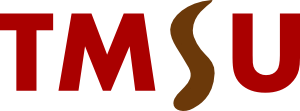Awesome

Overview
TMSU is a tool for tagging your files. It provides a simple command-line utility for applying tags and a virtual filesystem to give you a tag-based view of your files from any application.
TMSU does not alter your files in any way: you simply gain an additional view, which you can mount where you like, based upon the tags you set up.
Usage
Initialise Database
Before you can get tagging, you'll need to initialise a TMSU database in a folder in which you wish to use tags:
$ cd example
$ tmsu init
This will create a database under .tmsu that will be used automatically whenever
you are under that directory.
Tagging
You can tag a file by specifying the file and the list of tags to apply:
$ tmsu tag banana.jpg fruit art year=2015
This will tag your file, banana.jpg as fruit, art and year.
Additionally, the year tag has a value 2015 that adds more detail. (We'll come
back to tag values later.)
You can instead specify the tags first:
$ tmsu tag --tags="fruit still-life art" banana.jpg apple.png
This is particularly useful when piping a list of files:
$ find . -name "*.mp3" | xargs tmsu tag --tags "music"
Querying
You can query for files with or without particular tags:
$ tmsu files fruit or still-life
$ tmsu files fruit and art
$ tmsu files not still-life and art
$ tmsu files trippy and (art or music)
The and keyword is implied, so you can just leave it out:
$ tmsu files fruit art
$ tmsu files not still-life art
$ tmsu files trippy (art or music)
Where you've used values on your tags, you can query based upon the values of the tags:
$ tmsu files author=somebody
$ tmsu files "year < 2000"
Virtual File System
The virtual file system lets you mount your tagged files as a file system, allowing you to access your files by tags from any other application.
Mount the virtual filesystem to an empty directory:
$ mkdir mp
$ tmsu mount mp
More Information
A subcommand overview and detail on how to use each subcommand is available via the integrated help:
$ tmsu help
$ tmsu help tags
Documentation is maintained online on the wiki:
Installing
Packages
Thanks to the efforts of contributors using these platforms, packages are available for the following GNU/Linux distributions:
- Ubuntu
- Arch
- Nix/NixOS
These packages are not maintained by me and I cannot guarantee their content.
Binary
Binary builds for a limited number of architectures and operating system combinations are available:
You will need to ensure that both FUSE and Sqlite3 are installed for the program to function. These packages are typically available with your operating system's package management system. (If you install TMSU using one of the above packages, these should be installed automatically.)
-
Install the binary
Copy the program binary. The location may be different for your operating system:
$ sudo cp bin/tmsu /usr/bin -
Optional: Zsh completion
Copy the Zsh completion file to the Zsh site-functions directory:
$ cp misc/zsh/_tmsu /usr/share/zsh/site-functions
From Source
If you would rather build from the source code then please see COMPILING.md
in the root of the repository.
About
TMSU itself is written and maintained by [Paul Ruane](mailto:Paul Ruane paul@tmsu.org).
Release Notes
The rewrite in Rust is currently underway. The result of this will be v1.0.0.
Previous version history is available on the old master branch.
Copyright 2011-2023 Paul Ruane
Copying and distribution of this file, with or without modification, are permitted in any medium without royalty provided the copyright notice and this notice are preserved. This file is offered as-is, without any warranty.